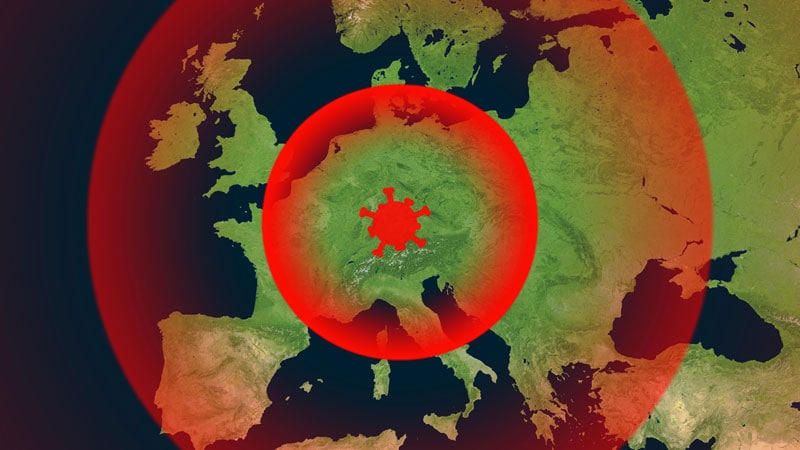Core Concepts
COVID-19 situation in Europe remains complex with varying trends and challenges.
Abstract
Standalone Note here
WHO Director's Warning
- COVID-19 is a persistent threat.
- Vigilance and efforts are crucial.
- Attention shifting from the disease.
Impact of Vaccines
- COVID-19 vaccines saved lives.
- Rates are decreasing but remain high.
- Other respiratory viruses circulating.
Concerns for Health Services
- Prepare for respiratory virus upsurge.
- Hospitalizations expected to rise.
- Unpredictable nature of SARS-CoV-2.
Varied Trends in Europe
- Mixed trends in SARS-CoV-2 activity.
- Severe outcomes in older age groups.
- Positive tests fluctuating.
Disease Severity and Vaccination
- Severity not increasing significantly.
- Risk of severity due to waning immunity.
- Complex picture of trends.
Challenges and Preparations
- Need to increase hospital capacity.
- No new variants of concern.
- Focus on long COVID issues.
Lessons Learned and Future Plans
- Importance of regional resilience.
- Preparation for future pandemics.
- International agreement needed.
Customize Summary
Rewrite with AI
Generate Citations
Translate Source
To Another Language
Generate MindMap
from source content
Visit Source
www.medscape.com
Picture of COVID-19 in Europe Is Complex
Stats
The WHO estimated that COVID-19 vaccines have saved at least 1.4 million lives in the WHO European Region.
The percentage of positive tests in primary care sites increased from week 44 to week 49 of 2023 but fell since week 50.
The WHO reported an increasing trend in SARS-CoV-2 positivity in four EU reporting countries in the second week of January: Poland, Portugal, Switzerland, and Slovakia.
The WHO estimated that 36 million people across the WHO European region may have developed long COVID over the first 3 years of the pandemic.
Quotes
"COVID is here to stay." - Hans Kluge, WHO Regional Director for Europe
"We are working…in the European region and beyond to revise and update pandemic plans." - Catherine Smallwood, MD, COVID-19 Incident Manager of WHO/Europe
Key Insights Distilled From
by Andrew R. Sc... at www.medscape.com 01-24-2024
https://www.medscape.com/viewarticle/picture-covid-19-europe-complex-2024a10001qs
Deeper Inquiries
How can countries ensure regional resilience in the face of future pandemics?
To ensure regional resilience in the face of future pandemics, countries can take several proactive measures. Firstly, they should focus on enhancing their healthcare infrastructure, including increasing the capacity of emergency departments and intensive care units. Adequate staffing and resources should be readily available to handle surges in cases. Additionally, countries should invest in research and development to advance medical technologies and treatments, as well as in vaccine development and production capabilities. Collaborating with neighboring nations and international organizations to share resources, information, and best practices is crucial for a coordinated response. Moreover, establishing robust surveillance systems to monitor disease outbreaks and early warning mechanisms can help countries respond swiftly to emerging threats.
What are the potential drawbacks of focusing on self-sustainability in medical supplies?
While focusing on self-sustainability in medical supplies is essential for ensuring a reliable source of essential healthcare resources during pandemics, there are potential drawbacks to consider. One major concern is the risk of limited diversity in the supply chain, which could lead to shortages or disruptions in the event of unforeseen circumstances such as natural disasters or geopolitical conflicts. Relying solely on domestic production may also result in higher costs and reduced access to specialized or high-quality medical supplies that could be obtained more efficiently through international trade. Furthermore, prioritizing self-sustainability may hinder global cooperation and solidarity in times of crisis, as countries may become more insular and less willing to share resources with others in need.
How can international agreements improve the response to global health crises?
International agreements play a crucial role in improving the response to global health crises by fostering collaboration, coordination, and information sharing among nations. These agreements can facilitate the rapid exchange of data, resources, and expertise, enabling a more effective and unified response to pandemics and other health emergencies. By establishing frameworks for cooperation and mutual assistance, international agreements help to overcome barriers such as political differences, logistical challenges, and resource constraints that may impede a coordinated global response. Additionally, these agreements can promote transparency, accountability, and equity in the distribution of medical supplies, vaccines, and treatments, ensuring that all countries have fair access to essential healthcare resources during crises.
0
